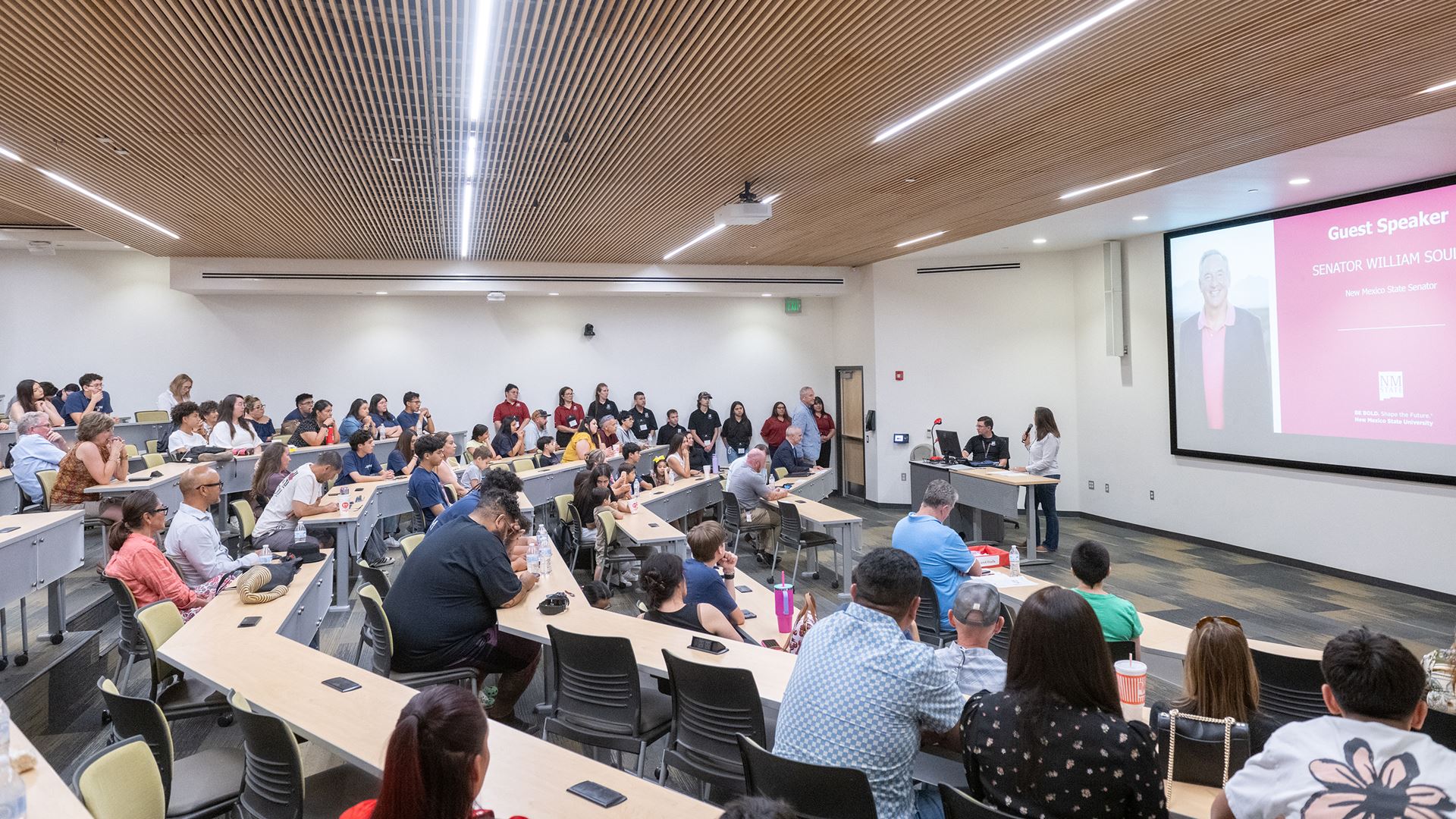The Physical Science Laboratory at New Mexico State University hosted the third annual STEM Mavericks camp, a hands-on artificial intelligence summer camp for Doña Ana County high school students. The two-week camp ran from June 2-13.
Continuing partnerships from previous years, STEM Mavericks was hosted with support from the Department of Defense’s Chief Digital AI Office and Trenchant Analytics. STEM Mavericks is a partnership with PSL Student Programs, PSL Information Science and Security Systems Division, NMSU’s Electrical Engineering Department and NMSU’s STEM Outreach Center.
Forty students from Las Cruces Public School District and Gadsden Independent School District were selected to be part of this year’s program. Students participating attend Alta Vista Early College High School, Arrowhead Park Early College High School, Centennial High School, Chaparral High School, Gadsden High School, Las Cruces High School, Mayfield High School, Organ Mountain High School and Santa Teresa High School.
The program also features the inclusion of area high school teachers. Selected through a competitive application process, the teachers participate in training prior to camp, support the learning activities during the camp, and will take the lessons learned to develop course content for their own classrooms. PSL selected Sandra Alvarado Marquez, mathematics teacher, and Claudia Arreola, financial literacy teacher, from at Santa Teresa High School; Angela Frausto, chemistry and physics teacher, and Alondra Torres, biology, chemistry and AP biology teacher, from Las Cruces High School; and Richard Santillano, computer science teacher from Gadsden High School.
In addition, undergraduate student teaching assistants provided valuable technical expertise to assist both the students and teachers as they worked on camp projects. This year’s TAs included Luke Catanach, a sophomore studying electrical engineering at NMSU; Eliseo De León, a student studying cybersecurity at Dona Ana Community College; Melodie Guzman, a sophomore studying electrical engineering at Notre Dame University; and Jack Nolen, a senior from studying computer science at NMSU.
Over the two-week program, students learned about coding and gained hands-on experience working on projects introducing them to computer science and electrical engineering to include the topics of AI and software defined radio. Students also were introduced to various facilities and programs at NMSU in engineering and computer science, such as the Aggie Innovation Space. STEM Mavericks students heard from various guest speakers from the region with careers in applied engineering, computer science and defense.
“Southern New Mexico has a long and proud history at the forefront of space and defense innovation, and the NMSU Physical Sciences Laboratory has been a part of that story from the beginning,” said Patricia Sullivan, interim director of PSL. “As New Mexico’s land-grant and space-grant university, NMSU is committed to opening doors through education and discovery. STEM Mavericks builds on that legacy by preparing the next generation for future careers in the region and beyond. Through hands-on learning in artificial intelligence, cybersecurity and advanced engineering, this camp sparks curiosity and expands opportunity, helping students and teachers envision their place in the future of national security and technology.”
PSL at NMSU leads a regional recruiting prototype to build a national security workforce pipeline aligned with the Department of Defense’s Chief Digital AI Office. The CDAO became operational in June 2022 and is dedicated to integrating and optimizing AI capabilities across the DoD. The office is responsible for accelerating the DoD’s adoption of data, analytics and AI, enabling the department’s digital infrastructure and policy adoption to deliver scalable AI-driven solutions for enterprise and joint-use cases, safeguarding the nation against current and emerging threats.
“STEM Mavericks is opening doors for our students by giving them real-world exposure to emerging technologies like AI and engineering,” New Mexico state Sen. Bill Soules said. “For many of our students, programs like this are game changers — sparking interest, building confidence and helping students see themselves in high-demand, high-tech careers. Our educators are just as inspired, bringing back new ideas and tools to make technology more accessible and relevant in every classroom.”
-30-
Written by Paige Wheeler

